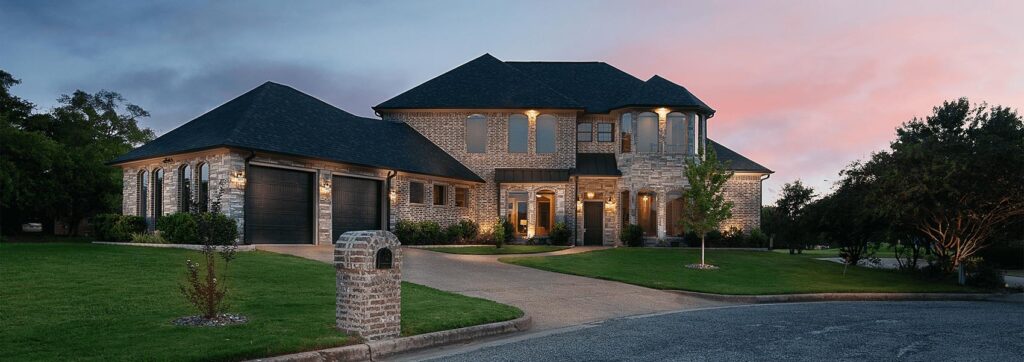Vinyl vs. Aluminum Windows: Which Option Is Best for Your Home?
When it’s time to replace your home’s windows, you’ll face an important decision: vinyl or aluminum? Both materials are popular choices for modern homes, offering distinct advantages and drawbacks. At Southern Windows & Doors, we work with homeowners throughout the region to select windows that balance budget, energy efficiency, durability, and aesthetics. This guide breaks down the real differences between vinyl and aluminum windows, helping you make an informed choice that matches your home’s needs and climate.
Understanding the key differences between these materials helps you avoid costly mistakes. Vinyl and aluminum windows serve different purposes and excel in different situations. The right choice depends on your priorities—whether energy savings, durability, maintenance preferences, or architectural style matter most. Neither option is universally “better.” Instead, each suits specific homes and homeowners perfectly. Our goal is helping you identify which material aligns with your situation.

Energy Efficiency: The Vinyl Advantage
Vinyl windows are superior insulators. PVC (polyvinyl chloride) resists heat transfer naturally, keeping warm air inside during winter and cool air in during summer. This thermal performance directly reduces heating and cooling costs, often significantly. Homeowners report energy bill savings through improved window insulation.
Aluminum conducts heat and cold readily, making it less energy-efficient unless upgraded with thermal breaks—special insulating barriers inside the frame. While modern thermally-improved aluminum windows perform better than older models, they typically cost more and still don’t match standard vinyl efficiency. For homeowners prioritizing energy savings and lower utility bills, vinyl wins decisively.
However, in mild Southern climates where extreme temperature control matters less, aluminum’s slightly lower efficiency may be acceptable, especially if other factors appeal to you.
Durability and Climate Performance
Aluminum windows excel in harsh weather conditions. The material’s strength and rigidity make it ideal for areas prone to hurricanes, high winds, or extreme temperature swings. The frame won’t warp, crack, or bend under stress. Aluminum’s rigid structure also allows for thinner frames and larger glass panes—advantages for modern architectural designs.
However, aluminum’s weakness emerges in humid or coastal environments where saltwater spray causes corrosion. The material also shows scratches, dents, and discoloration readily, requiring regular maintenance and touch-up painting to preserve appearance.
Vinyl windows offer excellent durability for most residential applications. Modern vinyl resists UV degradation, temperature fluctuations, and moisture damage. Because vinyl is uniform throughout the frame material, scratches and dents don’t show as obviously as they do on aluminum. Vinyl typically lasts 30 to 40 years with proper installation and minimal maintenance.
Maintenance Requirements
This category heavily favors vinyl. Vinyl windows are virtually maintenance-free. Simply rinse them occasionally with water and wipe with a damp cloth. No painting, sealing, or special treatments required. This low-maintenance benefit appeals to busy homeowners who want to install windows and forget about them.
Aluminum windows require more attention. They need regular cleaning with special aluminum cleaner to prevent corrosion buildup. Moving parts require occasional lubrication to prevent jamming. Scratches and corrosion spots may need touch-up painting every few years, especially in humid or coastal areas. For homeowners who prefer minimal maintenance, aluminum creates ongoing work.
Aesthetic Preferences and Customization
Aluminum windows offer sleek, modern styling. Their thin frames maximize glass area and provide unobstructed views—perfect for contemporary homes emphasizing clean lines and minimalist design. Aluminum comes in various powder-coated finishes and colors, and can be repainted for cosmetic updates.
Vinyl windows provide tremendous design flexibility. They can mimic traditional wood-look finishes that complement colonial, ranch, and transitional homes. Vinyl comes in numerous colors, textures, and finishes. However, vinyl windows cannot typically be repainted, so your color choice is permanent. Custom colors offer solutions but may increase costs.
Cost Considerations
Vinyl windows cost significantly less upfront—typically 30 to 50 percent less than comparable aluminum units. However, calculate total cost of ownership, not just installation price. Lower energy bills and minimal maintenance make vinyl more economical long-term. Aluminum’s higher upfront cost may offset through longevity in very harsh climates, but typical homeowners save more money with vinyl over 20 to 30 years.
Choose Windows That Match Your Home
The best window choice balances your climate, budget, design preferences, and maintenance tolerance. Southern Windows & Doors offers both vinyl and aluminum options, expertly installed to perform beautifully in your home’s specific environment.
Ready to upgrade your windows? Schedule a free consultation at Southern Windows & Doors today. Our specialists assess your home and climate to recommend the perfect window solution. Contact now or visit us to explore your options.
